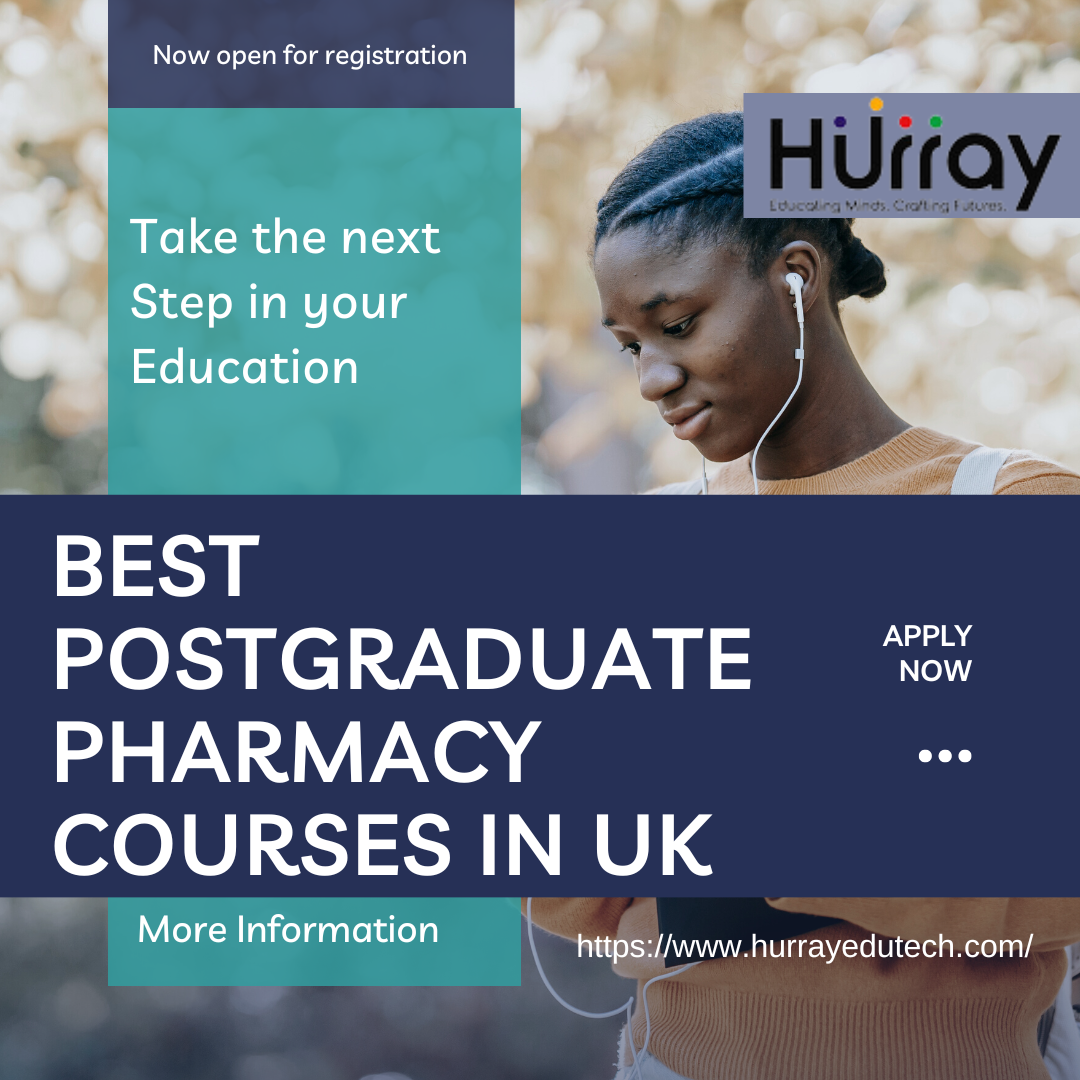Best Postgraduate Pharmacy Courses in UK
Following your B Pharmacy degree in India, consider going to the UK for your further studies. Read on to learn about the best postgraduate pharmacy courses in the UK.
Master’s degrees in Pharmacy
Your best option to study further in the UK is by choosing a Master’s degree.
UK universities offer a number of MSc programs related to pharmaceutical sciences. Each university offers unique opportunities to specialise in one area or in a combination of 2 related fields. This ensures that you can go beyond the fundamentals you studied in your Bachelor’s, and develop real expertise in an in-demand area cue card questions .
Besides MSc degrees, some universities offer the option to pursue an MRes, which is entirely research-based, or to opt for one of multiple exit points with PGDip and PGCert options.
These programs are typically for 1 year, and can cost anywhere between 15,000 to 30,000 GBP – depending on the university standing as well as the type of program.
Specialisations Available
Pharmacology/Pharmaceutical Science
These programs will help you develop a deeper understanding of pharmacology, including the mechanisms by which drugs act. You’ll study modules like Systems and Cellular Pharmacology and Pharmacology of Biological Systems.
Clinical Pharmacology
Here, you’ll learn how to apply clinical pharmacological, regulatory and ethical principles to the optimisation of therapeutic practice and clinical research. You’ll be exposed to emerging areas such as pharmacogenomics and personalised medicine. Modules you’ll study include Principles of Pharmacology, Drug Disposition, Topics in Therapeutics etc.
Drug Discovery/Development
These programs are designed to equip you with skills highly demanded within the industry. Along with modules in pharmacology principles, your program will include learning how to translate lab-based research into commercially-ready medical biotechnology and drugs, covering various aspects of the development process, from initial design to clinical trials. You’ll be exposed to emerging areas like Translational Medicine as well.
Toxicology
These programs aim to provide you with a comprehensive overview of drug safety practices within the drug development process. You’ll cover topics like Safety Pharmacology, Mechanisms of Drug-induced Toxicities and Regulatory affairs, alongside other pharmacology subjects.
Biotechnology
Here, alongside fundamental pharmacology subjects, you’ll specialise in Biotechnological Approaches to Pharmacology, ranging from the synthesis of new drugs, to the production of drugs from genetically modified microorganisms.
Neuroscience/Neuropharmacology
In this specialisation, the emphasis is on the interaction between drugs and the nervous system. You can expect to study modules like Cognitive Neuroscience and Neurophysiology in these courses.
Study Options
MSc Pharmacology, King’s College London
MRes Pharmacology, Nottingham Trent University
MSc Clinical Pharmacology, University of Glasgow
MSc Clinical Pharmacology, University of Aberdeen
MSc Clinical Pharmacology, King’s College London
MSc Pharmacology and Drug Discovery, Coventry University
MSc Pharmacology and Drug Development, University of York
MSc Drug Discovery and Toxicology, University of Hertfordshire
MSc Drug Toxicology and Safety, University of Bradford
MSc/MRes Pharmacology and Biotechnology, Sheffield Hallam University
MRes Pharmaceutical Technology, University of Bradford
MSc Physiology, Pharmacology and Neuroscience, University of Bristol
MSc Neuropharmacology, Nottingham Trent University
MSc/PGDip/PGCert Analytical and Pharmaceutical Science, Loughborough University
MSc/PGDip/PGCert Pharmaceutical Science and Medical Chemistry, Loughborough University
Entry Requirements
Academic Qualifications | Bachelor’s degree in relevant discipline, including pharmaceutical science, medical science, biological sciences, life sciences etc. Min. score equivalent to UK 2:1 or 2:2 will be required, depending on the university. (Equivalent to 55 to 65% in 3-year Bachelor’s from Indian universities) |
Professional Experience | Not required, but can provide added value to your application. |
Other Requirements | Personal statement may be required. MRes may require statement of research interests. |
English Language Requirements | IELTS Academic with min. 6.5. |
Scholarships and Funding | Scholarships are available. |
How You’ll Study
Course Structure
Your course of study will include modules related to pharmacology and cellular/molecular sciences more generally, as well as modules related to the specialisation of your chosen program, as you saw above.
The emphasis in most modules is on practical lab-based learning, in addition to theory. You’ll clock a number of hours in the lab.
UK MSc programs lay strong emphasis on research. You’ll have to complete a research project or write a dissertation on a relevant topic. You’ll work under the guidance of an experienced professional, and will be trained in specialist laboratory techniques as well as bioethical considerations of clinical research in the area.
Read More : https://www.hurrayedutech.com/post/Best-Postgraduate-Pharmacy-Courses-in-UK



Comments
Post a Comment